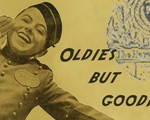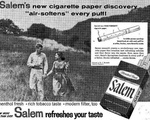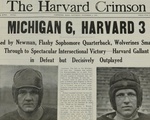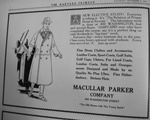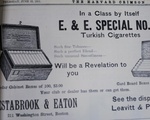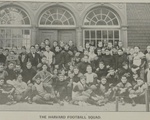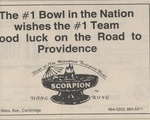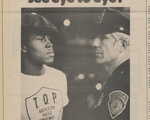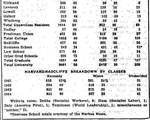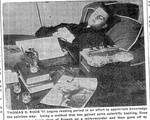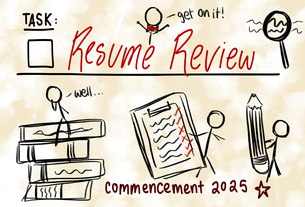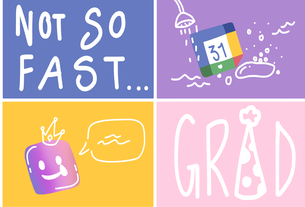Oldies But Goodies
Memories of Memorial Hall
FM returns to The Crimson’s archives to explore Memorial Hall’s history and to imagine the memories made there through the years.
Harvard in 1971
During the '70-'71 academic year today's Harvard was beginning to emerge. Harvard broke ground on the Science Center, ROTC left campus, pets were banned in student dorms, and jocks mourned the loss of the physical training requirement. American college students were in the spotlight more than ever following the Kent State shootings and ratification of the 26th amendment, which extended voting rights to all 18-year-old citizens. Amidst the growing youth power movement, there was also worry that, among other concerns, motorcycles were driving young men crazy.
Harvard in 1961
Although George A. Miller, professor of psychology, might have been misguided in his claim that computers don't threaten to dominate society, plenty of changes were occurring during the '61-'62 school year.
Harvard in 1930
In the 1930-1931 school year, American was sinking deeper and deeper into a depression that would become the greatest in the county's history. But from reading issues of The Crimson from that year, you might not be able to figure that out.
Harvard in 1920
Two artillery guns flanked the Widener Library steps, "in order that visitors of the College, new students and men contemplating the ROTC course" might gain some experience of Harvard's military department. It was September 25, 1920—less than two years after the end of World War I—and the military remained very much a part of the Harvard experience.
Harvard in 1910
A peek inside the bound volumes of The Crimson shows how a picture of life at Harvard in 1910 very different from the Harvard experience one hundred years later. Rising seniors, for example, applied for housing in Holworthy, Hollis, and Thayer for their final year at Harvard — and shortly afterwards, everyone's rooming assignments were posted on the front page of The Crimson.
Harvard in 1900
As reunion week approaches at the College, thousands of alumni from dozens of different classes will flock to the Harvard campus. But it's a safe bet to say that no one will be around from the class of 1901. Even without these would-be 130-year-old alumni, The Crimson archives are still here to offer us a brief window into the world of Harvard 110 years ago—the news, the coverage, and the quirks.
Harvard in 1985
Over the next few days, we'll be pulling snippets from The Crimson archives to commemorate the coming class reunions. You'll ...
Harvard in 1975
Over the past few days, we've been pulling snippets from The Crimson archives to commemorate the coming class reunions. You'll see selections from the graduation year of each class celebrating a reunion next week. Today we look back at 1975, the year the Vietnam War ended and Bill Gates founded Microsoft. This ad for Kodak, published in The Crimson in the spring of 1975, highlights still-simmering racial tension, something Harvard was also addressing in a critical review of minority representation in its classrooms.
Harvard in 1960
There has been one Queen of England, but that’s about all that has been constant in the 50 years since the Harvard class of 1960 graduated.
Harvard in 1950
Over the next few days, we'll be pulling snippets from The Crimson archives to commemorate the coming class reunions. You'll see selections from the graduation year of each class celebrating a reunion next week. The above image of a "modern" young man cramming for a language exam by listening to tapes of French indicates that Harvardians in the 1950s considered themselves on the cutting edge. But they still had a long way to go.





